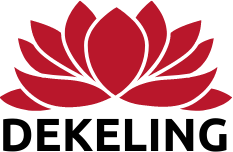A Dekeling student, David McWherter, is going in for surgery soon. He and I met this morning and we chatted about how he can carry his practice to this experience. He agreed that I could share the gist of our chat with you:
Almost every practice has some utility when you are sick or receiving treatment. It’s best to choose one or two and keep it fairly simple. From among David’s practices, we looked at the following. He will choose on his own.
- Awareness of all experience arising. For this practice, simply notice every experience of body (sensations, etc.) and mind (thoughts, emotions, memory, etc.). Let it arise and see both the experience and its nature (transient, dreamlike, etc.) If you are having a general anesthetic, notice the changing mind state as you ‘go under.’
- Relative bodhicitta. Set the intention to benefit all beings every step of the way in your travel to the hospital, your time there and your journey home. Each time someone comes into your room or interacts with you, however briefly, ask yourself in what small way you can benefit them. This is particularly good practice during the pandemic, when many frontline workers are stretched thin.
- Mantra. If you are familiar with mantra practice, recitation of mantra may help calm the mind and more during illness. If you are chanting a mantra like Chenrezig’s mantra, for example, be aware of yourself as the embodiment of that quality of awakened compassion.
- Gratitude practice. As time goes by, find things to be grateful for. This turns the mind from the tendency to complain or worry, which tend to increase fear and agitation. Gratitude balances experience by filling the mind with what’s working, antidoting the natural tendency when ill to focus on what appears to not be working. Gratitude, a form of the practice of contentment, keeps the mind in balance and strengthens equanimity.
When we can practice in the face of potential adversity, we transform difficulty into awakening. This is one of the Seven Points of Mind Training.
As a side note, Dave has a good system of support in place for the surgery, but it’s always appropriate to include community members in your practice. If you have a challenging time, let’s talk about how to apply practice all along the way! We’re in this together.
